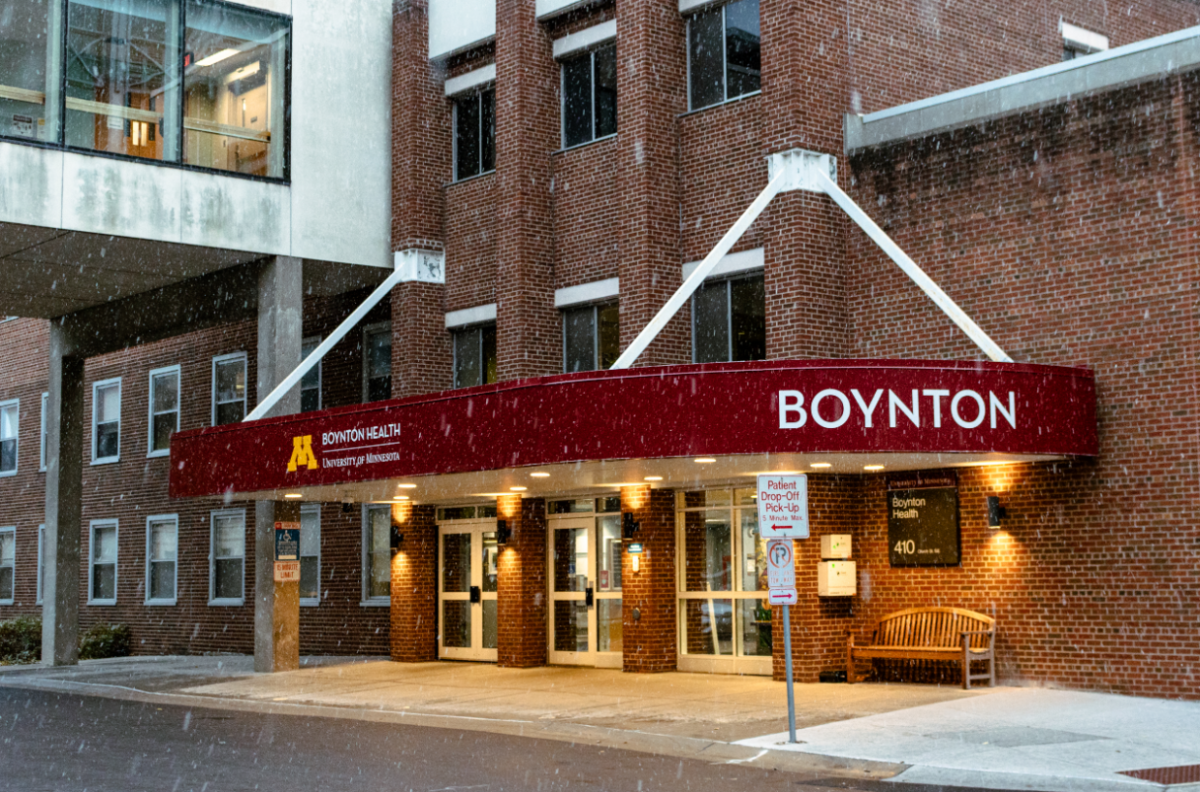Minnesotans are getting more flu shots as public COVID-19 concerns wane ahead of the 2024 flu season, according to Minneapolis and University of Minnesota public health officials.
Elizabeth Govrik-McCoy, a public health specialist for the Minneapolis Health Department who helps run free vaccine clinics in the city, said the longstanding routine of getting a flu shot is not the same top-of-mind health concern for Minneapolitans the way four-year-old COVID-19 is heading into winter months’ peak flu season.
“And if we were having this conversation 10 years from now, it’s going to be ‘This is what you need to do,’ just like get your flu shot,” Govrik-McCoy said.
Just over 25% of Minnesotans are up to date on their flu vaccines while about 15% are up to date on their COVID-19 vaccines, giving flu shots about a 10% lead over its pandemic counterpart as of Thursday, according to data from the Minnesota Department of Health (MDH).
COVID-19 is a more unpredictable disease, according to Ingrid Johansen, the director of M Health Fairview’s free vaccination program Minnesota Immunization Networking Initiative (MINI), which works to reduce disparities in vaccine access such as language, health insurance and transportation barriers.
COVID-19 does not have a designated infectious season like the flu, and according to Johansen, medical science has yet to solidify a guaranteed vaccine routine for maintaining healthy immune systems.
Johansen said she has seen COVID-19 vaccine “fatigue” but more interest in flu shots this year from visitors at MINI clinics, which offer both vaccines and already administered over 5,000 of 10,000 expected vaccinations.
“This sort of mentality of, ‘I’ve already gotten like five COVID vaccines, I don’t want another one,’ and so that’s been a message that we’ve really been trying to help communicate with folks on,” Johansen said. “I know we have gotten a lot, but it was a novel, very dangerous infectious disease, and this is what we have to do to keep ourselves and our communities most protected.”
Govrik-McCoy said the city’s free vaccine clinics try to be a reliable source of accurate information for those who are vaccine-hesitant.
As of November 2023, over 80% of U.S. adults received at least one COVID-19 vaccine dose since the pandemic began, according to data from the Centers for Disease Control and Prevention. Just under half of U.S. adults got a flu shot during the 2023-24 flu season.
University of Minnesota students are getting vaccinated, too, according to Boynton Health’s Director of Public Health Michelle Trumpy. More students are getting flu shots than COVID-19 vaccines, though the numbers from Boynton’s free vaccine drop-in clinics and appointments are close.
“We’ve known about flu season, we know about a flu vaccine, now we’re adding COVID into the mix and so we’re still working on getting that message out that this is an important vaccine to get every single season as well,” Trumpy said. “Even just how we talk about it, we used to talk about our flu clinics, well now they’re flu and COVID clinics and so that’s part of it.”
Over 62% of University students got a flu shot in the last 12 months while about 52% got a COVID-19 vaccine, according to results from the University’s 2024 College Student Health Survey.
Trumpy said it is important for students to get their flu and COVID-19 shots because their close-quarters living and social situations can put them at risk of getting sick.
“For a college student, getting the flu or COVID could mean missing class, it could mean being too sick to do homework, it could mean missing out on a job, which is important revenue for students, or important social activities,” Trumpy said. “We know that vaccination reduces your risk of getting sick and if you do get sick and you’ve been vaccinated, typically it’s more mild.”
Johansen said while vaccination numbers are steady, both flu and COVID-19 remain serious health concerns, and combating public distrust in vaccinations is the biggest challenge to public immunity health.
“(Vaccines) can keep you in your life, like with having to miss work or school, so I think we’re really nervous about the landscape moving forward and this like continued erosion of trust in vaccines,” Johansen said. “People will die if we really start to lose ground in some of our herd immunity.”













